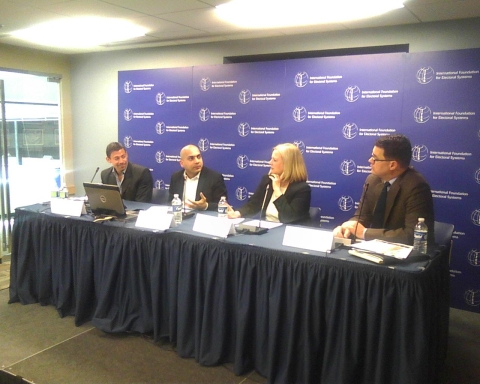
Pakistanis attending the Pashtoon Khuwa Awami Party election event in Quetta. Courtesy of Muhammed Idrees.

Taimoor, second from left, at the IFES panel event entitled "The Role of Media in Elections."
ICFJ recently conducted a program training rural Pakistani journalists how to cover the country's upcoming general elections with the aim of highlighting issues important to rural citizens. As the country prepares for its first democratic transition of power May 11, the program provided almost 40 rural journalists with mobile devices, their own wireless "hotspots," and taught them to use Facebook and Twitter to cover issues important in their communities. The journalists were linked with colleagues from major media in Karachi, who are following the rural journalists' social media feeds and giving wider coverage to the issues they raise.
ICFJ Program Manager Babar Taimoor spoke about the program at a recent panel discussion at the International Foundation for Electoral Systems. Watch the panel discussion here.